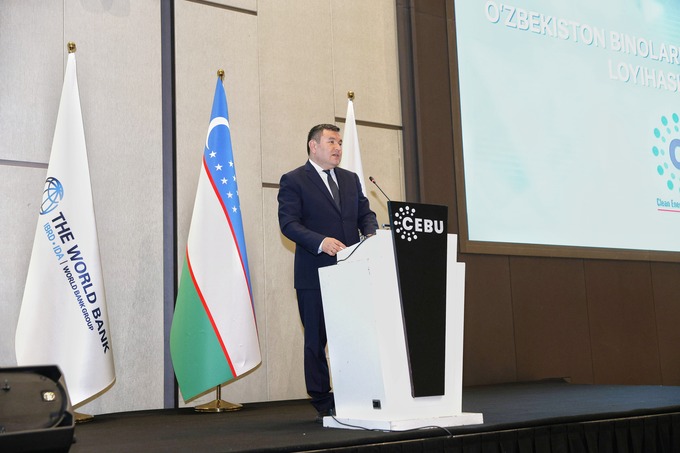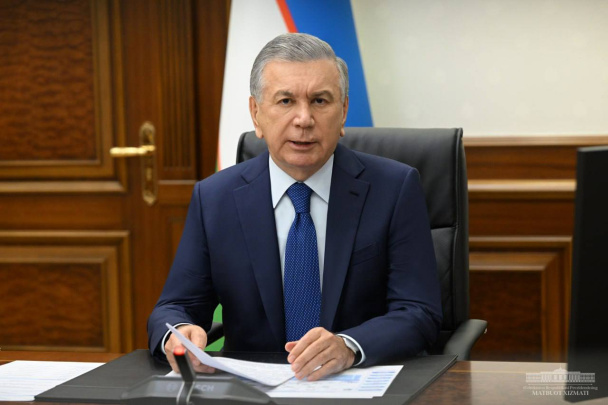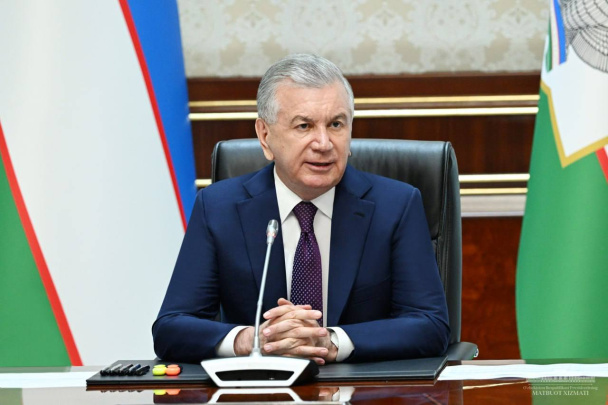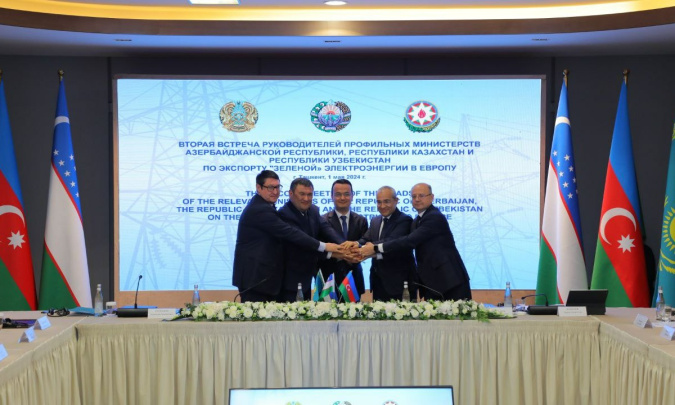Over 500 public buildings across Uzbekistan to become energy efficient within framework of the Ministry of Energy and WB project
The Ministry of Energy and the World Bank presented a new project “Clean Energy for Buildings in Uzbekistan,” the WB press service reported.

Photo: Ministry of Energy
The project will contribute to improving the energy efficiency of public buildings and developing an environment to attract private investment in clean energy in the buildings sector.
In Uzbekistan, the buildings sector accounts for 50% of total final energy consumption, followed by industry (22%) and transport (20%), the report notes. In the public buildings sector, about 70% of energy consumption in district hospitals, 84% in preschool institutions, 88% in rural clinics and 97% in schools is for heating.
Most public buildings in Uzbekistan were built in the 1970s and 1980s without taking into account energy efficiency standards, the World Bank noted. They have poor thermal insulation and do not meet thermal comfort standards. They use outdated boilers and hot water heating systems with excessive energy consumption.
A study conducted by the World Bank in 2021 showed that the annual potential for energy savings through improved energy efficiency in preschools, schools and health care institutions in Uzbekistan is more than 7,000 gigawatt-hours (GWh). Of this, about 6810 GWh can be saved in the form of heat and more than 240 GWh in the form of electricity.
In June 2022, the World Bank Board of Executive Directors approved a concessional loan of $143 million provided to the country for the implementation of the Clean Energy for Buildings project in Uzbekistan. These funds will be used to improve the readiness of public buildings throughout Uzbekistan for a changing climate, reduce energy consumption, and reduce greenhouse gas emissions into the atmosphere.
Head of the WB Representative Office in Uzbekistan Marco Mantovanelli
The project is being implemented by the off-budgetary intersectoral energy saving fund under the Ministry of Energy. The fund was created in 2020 to attract investment and finance energy efficiency projects in various sectors of the economy, the social sphere, and the housing sector.
As part of the project, the fund will finance measures to improve energy efficiency in institutions of the Ministry of Preschool and School Education and the Ministry of Health operating in rural areas and cities throughout the country. It is planned that during the implementation of the project in 2023-2028, more than 500 social facilities throughout the country, including preschool institutions, schools, hospitals and clinics, will be modernized and renovated to improve their energy efficiency.
The fund will also provide services to assess the energy efficiency of these buildings, develop measures, procure and finance the necessary energy efficiency works in the relevant institutions, and measure and verify the energy savings they save.
Public buildings covered by the project will be upgraded to national thermal comfort standards to avoid underheating or overheating. Project activities will reduce energy consumption, improve air quality, reliability of energy supply to relevant institutions, especially in the winter months, as well as the provision of public services by improving thermal comfort for students in preschool and school institutions, patients in healthcare institutions, as well as their employees, the World Bank noted.
Measures to improve the energy efficiency of the above-mentioned public buildings will include improving their thermal insulation and the functioning of heating, ventilation, air conditioning and lighting systems. In addition, the relevant institutions will replace coal boilers with heating and water heating systems powered by renewable energy sources. In particular, this will be done through the installation of solar panels integrated with heat pumps and solar collectors.
In addition, as part of the project, an information and educational campaign will be carried out among the population to increase citizens' awareness of energy efficiency issues.
Recommended
List of streets and intersections being repaired in Tashkent published
SOCIETY | 19:12 / 16.05.2024
Uzbekistan's flag flies high on Oceania's tallest volcano
SOCIETY | 17:54 / 15.05.2024
New tariffs to be introduced in Tashkent public transport
SOCIETY | 14:55 / 05.05.2023
Onix and Tracker cars withdrawn from sale
BUSINESS | 10:20 / 05.05.2023
Latest news
-
Uzbekistan tops medal table at Asian Cadet Judo Cup in Kazakhstan
SPORT | 18:42 / 05.07.2025
-
Uncertainty grows as new homes remain without gas supply
SOCIETY | 17:46 / 05.07.2025
-
Uzbekistan plans to launch national ferry service in Caspian Sea
SOCIETY | 16:03 / 05.07.2025
-
Dozens of violations, zero accountability: Fergana police cancel fines for chief’s wife’s car
SOCIETY | 16:02 / 05.07.2025
Related News

23:06 / 27.08.2024
President orders to replace heating system of 1 million households with an energy-saving one

10:39 / 02.07.2024
President set goals to increase energy production, modernize infrastructure and ensure uninterrupted energy supply

09:19 / 31.05.2024
Uzbekistan may introduce energy consumption rating

10:17 / 02.05.2024



